Our Travel blog
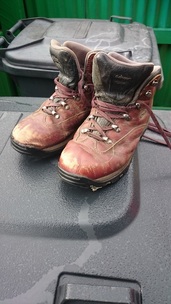 Saturday 17 September Bungay is one of Britain's rarest surnames, with fewer than 460 examples recorded in the country. That’s around 12 people per million. I mention it because in May 2012 two football teams comprised entirely of people with the surname Bungay lined up against each other. The subs, referee and linesmen shared the same surname, as indeed did the mascot and doctor. Not coincidently the match took place in Bungay in Suffolk. It’s that sort of place. We arrived in Bungay in an ominous storm but the sun eventually broke through and on Saturday morning a dank humid heat descended like a warm blanket. We’ve returned to Mavis after a break and it’s a marvellous feeling. We’ve been re-familiarising ourselves with her and after a few polite “excuse me’s”, faintly grumpy shuffling out of each other’s way and ‘no, no, its fine, I’ll wait” moments we settled back into our on-board routines. The site we’ve chosen is close to the River Waveney. It so happens that at Middle School I was in Waveney House, which meant I got to wear a cheap green badge and collect points for my house. At the end of the first term we all eagerly gathered in the hall as the head master spouted forth about pride, team work and suchlike until he eventually counted down to reveal that of the four houses we were pipped at the post by Alde. (Red badge I think). Their elation was short lived when it was revealed that their reward was to have their house name engraved on a cheap cup and the satisfaction of knowing they’d won, which rather wiped the smug off of their faces. ‘Bugger that’ we all thought and a hall full of disappointed children filed back down drab corridors and into lifeless classrooms vowing never to bother again. Every so often we’d be awarded house points for doing something worthy, like winning the 200 metres, excelling at a test or in my case remembering my name. If we could be bothered they’d be begrudgingly added to the tally. A friend of mine once earned a house point for remembering that he’d earnt a house point. Back in the present day and we inspected the site facilities, which were basic and from an era when the most one expected was a door on the toilet and curtains with vivid orange flowers on them. Nevertheless they were clean and the showers hot and refreshingly free of gadgets, knobs, buttons, shiny dials and gizmos to steam your genitals; just the one button for on and off. I liked them immensely. Bungay itself, apart from playing host to mono-named soccer (final score 6-6 in case you were wondering) is a most becoming place. The town centre is stretched out, radiating from the Butter Cross, which means that while ambling around you discover quaint shops around unpromising corners and stumble across interesting buildings in unlikely places. It has an old fashioned timeless feel to it, some of the shops still close for lunch and Thursday is half day closing. Writing in The Guardian in 2013 Tom Dyckhoff described it as “…a town that's fallen down the back of the sofa.” For all its antiquated feel though I formed the impression that it’s struggling. A couple of large town centre pubs are closed and boarded up, some of the shop fronts are shabby, the stock faded behind grubby windows and the busiest trade seemed to be in the charity shops that occupy every other premises. An honourable mention though to the Old Bank, for its quaint tea shop on the ground floor and for using the former bank vault as a gallery and also to The Chocolate Box, which was like a reverse Tardis, it’s large shop front promising all manner of stationary, toys and confectionary but inside its merchandise stacked floor to ceiling in a space about the size of a phone box. And an additional commendation for Bungay Castle. Although there isn’t much left to admire it cost us the princely sum of 50p each to wander around in the afternoon sun. Even my father would have stumped up the paltry entrance fee for an opportunity to read its information signs and clamber over its remains. Building on the site of the first castle which was begun in 1165 by Hugh Bigod, Roger Bigod in 1294 got a royal licence to “crenelate his house” and so retained most of the original keep and added curtain walls. Presumably no one thought to check that his magnificently crenelated house was distinctly castle like when he’d finished tarting it up. The history of the town is quite exciting; the devil disguised as a black dog, a great fire and Roman and Saxon occupation. All this and more is summarised on this pleasingly succinct website. By the way, Bernie Ecclestone of Formula 1 and tax avoidance fame was born 3 miles away from Bungay in the hamlet of St Peter, South Elmham. Sunday 18 September. We took the bus to nearby Halesworth to see my mother today. It was a dull, featureless journey through countryside so familiar that I just let it drift by, but no doubt its charms are apparent to people not acquainted with the area. Once we arrived though I perked up as we explored a bit more of our family history. My grandfather, my mother’s father, worked for Spong and Co in Tottenham. Spong and Co were known for making all manner of household appliances of the type that are not glamourous but necessary all the same. Someone has to produce cheese graters, mincers, whisks and countless other utensils as well as utility items like fire extinguishers. One of my mother’s memories is of him in his role as fire warden after the outbreak of WW2, leading a rag-taggle troop of men down West Green Road wearing Spong and Co colanders on their heads for protection against Nazi bombs and failing masonry. He was something of a local lothario and after the war was caught out in one too many illicit liaisons, apparently by the family poodle trailing him to an address he’d much rather have kept a secret. In an unusual turn of events for the time my grandmother went on to successfully divorce him. We don’t know what happened to him after that. Or at least I don’t and it’s an uncomfortable area of family history to explore. For all her whimsical tales of his misadventures and not so cunning assignations a darkness gathers around her if reminisces stray away from trivial humorous anecdotes. Perhaps some experiences and memories are best left in a former life. After our visit we treated ourselves to a pub lunch then returned via bus to Mavis. As the sun was still out we took full advantage and sat outside reading and drinking tea. The only blot on the landscape came in the form of the camp bore. Every site seems to have one, regular visitor who wanders around with a proprietorial air and a bottomless reservoir of unexciting tales to deliver to the unsuspecting. Bungay’s version wore orange camouflage trousers, which I cannot imagine were concealment against any terrain or flora on earth. He was towed along by a dog that was a cross between a Westie and a Staffie. We know this because poor Alison was caught and thus knows all about it, his wife’s legs and how they give her trouble, where they used to stay and a lot more information than absolutely anyone needs to know, and I include him in that sweeping generalisation. The way to handle him was to wait with a fixed smile on your face letting him drone on until a passer-by hove into view, whereupon you’d make eye contact with the new arrival, greet them warmly as if you’d been best friends since primary school, make an introduction to Mr Boring of Bungay and then depart post-haste, leaving a bewildered stranger to face his barrage of tedium. Monday 19 September Greeted by a watery sun we popped into Bungay for some supplies and returned to Mavis. We had two last duties to perform before leaving for Cambridge. Well, one actually since Alison vetoed my plan to see if Mr Camouflage Trousers’ caravan would float on the Waveney. The second was to bid farewell to Alison’s old walking boots, a tale that she now picks up: Alison’s walking boots I got rather nostalgic over throwing my old walking boots into the dustbin. These boots and I have been through a lot together though. I bought them in Hawes, Yorkshire in 2008, the first holiday that I had ever taken completely on my own. At 14 years old, Dom decided that he would rather stay with his Dad than trudge over hill and dale with his Mum so I thought, ‘blow it, I’ll go on my own’. The first day’s walk in my new boots gave me blisters and I spent the next few days hobbling through the discomfort but from then on there was no stopping us. My boots and I walked up Ingleborough in the pouring rain where I was approached by some beardy guy who asked me if I wanted to go into Gaping Gill, an amazing natural cave large enough to fit St Pauls Cathedral in and which is accessed via a 100m descent on a winch seat. Usually the Fell Beck stream runs into the cave but the Craven Potholing club diverts it every August Bank Holiday so that unsuspecting members of the public can be accosted on the hillside and pay for the privilege of being lowered down into its depths. So of course I said yes, it’s not like I’m claustrophobic or anything…no hang on, I’m claustrophobic…what the hell was I doing? It was one of those ‘experience of a lifetime’ things. What I mean is, I never want to do it again! Yes it was an incredible cave but I spent the entire time down there hyperventilating and just saying over and over in my head, ‘get me out of here, get me out of here’. But I’m glad I did it. On another solo holiday in the Lake District I went to check out some standing stones, hiking uphill for miles in the type of rain which soaks through even the toughest waterproofing. I arrived at the site to see a scattering of rocks which were barely raised above ground. All rather disappointing. The only other people stupid enough to have braved the weather for a rather underwhelming pre-historic rockery were a couple of middle aged gentlemen who had driven their hire car up from the nearby town to look at the stones. They took pity on the drowned rat before them and kindly offered to give me a lift back to the town. Ignoring the sensible voice in my head warning me of stranger danger I accepted their invitation, as to be honest the thought of walking back through the raging torrent of water tumbling down from above was not an appealing one. As we started our drive back I jokingly said that if my Dad knew I’d accepted a lift from two complete strangers he’d go mad, to which the driver replied, “It’s okay honey, no need to worry, we’re American”. Oh well, nothing to worry about then I thought, there’s never been an American serial killer….Anyway I made it back alive and went back to my B & B to change my wet clothes and found that the only part of me that was dry was my feet thanks to my trusty boots. We have walked many miles my boots and I, and eventually we were joined on our walks by Ray and his boots. We’ve got to know some beautiful places in the UK pretty well over the last few years but there comes a time in any walking boot/human relationship where you start to notice the rot setting in; the squelching from the foot of water that has seeped in through the waterproofing, the slips when you’re scrambling over rocky ground and you make the tough decision that ‘it’s over – we can’t go on like this anymore - it’s not me, it’s you’. And so I placed them reverently in the wheelie bin on our site in Bungay and walked away with bittersweet tears in my eyes as a montage played out across the sky, a power ballad accompanying it. Farewell dear friends. And on that plaintive note we took off in Mavis and back to Cambridge for more emotional farewells.
0 Comments
Leave a Reply. |
IntroductionThank you for stopping by and reading our blog. If you don’t know who we are, what we are doing and you're wondering what this is all about you can read up on our project here. Archives
November 2017
Categories |
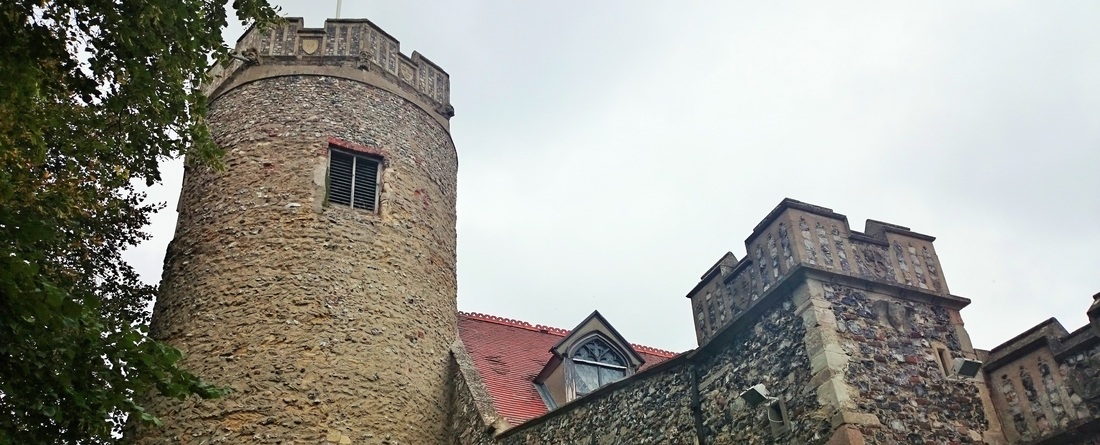
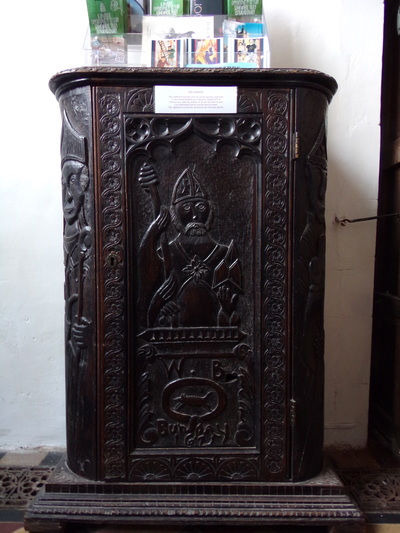
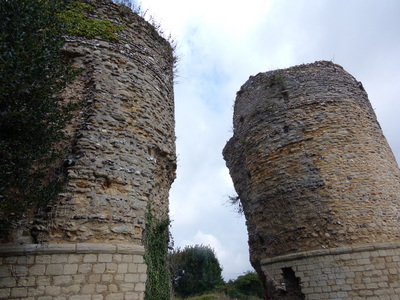

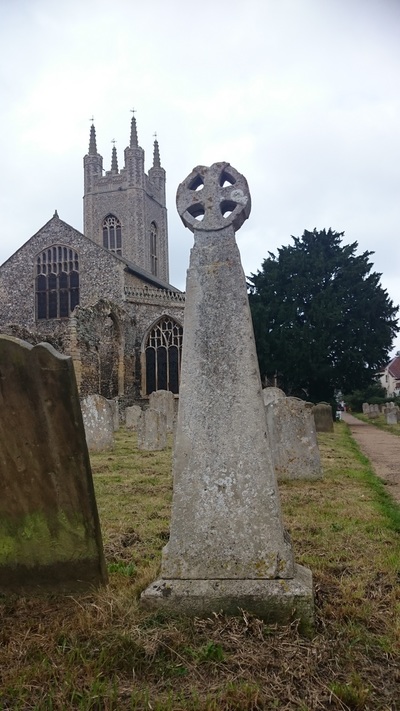
 RSS Feed
RSS Feed
